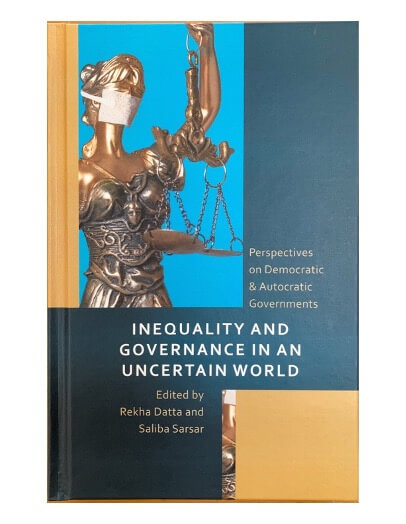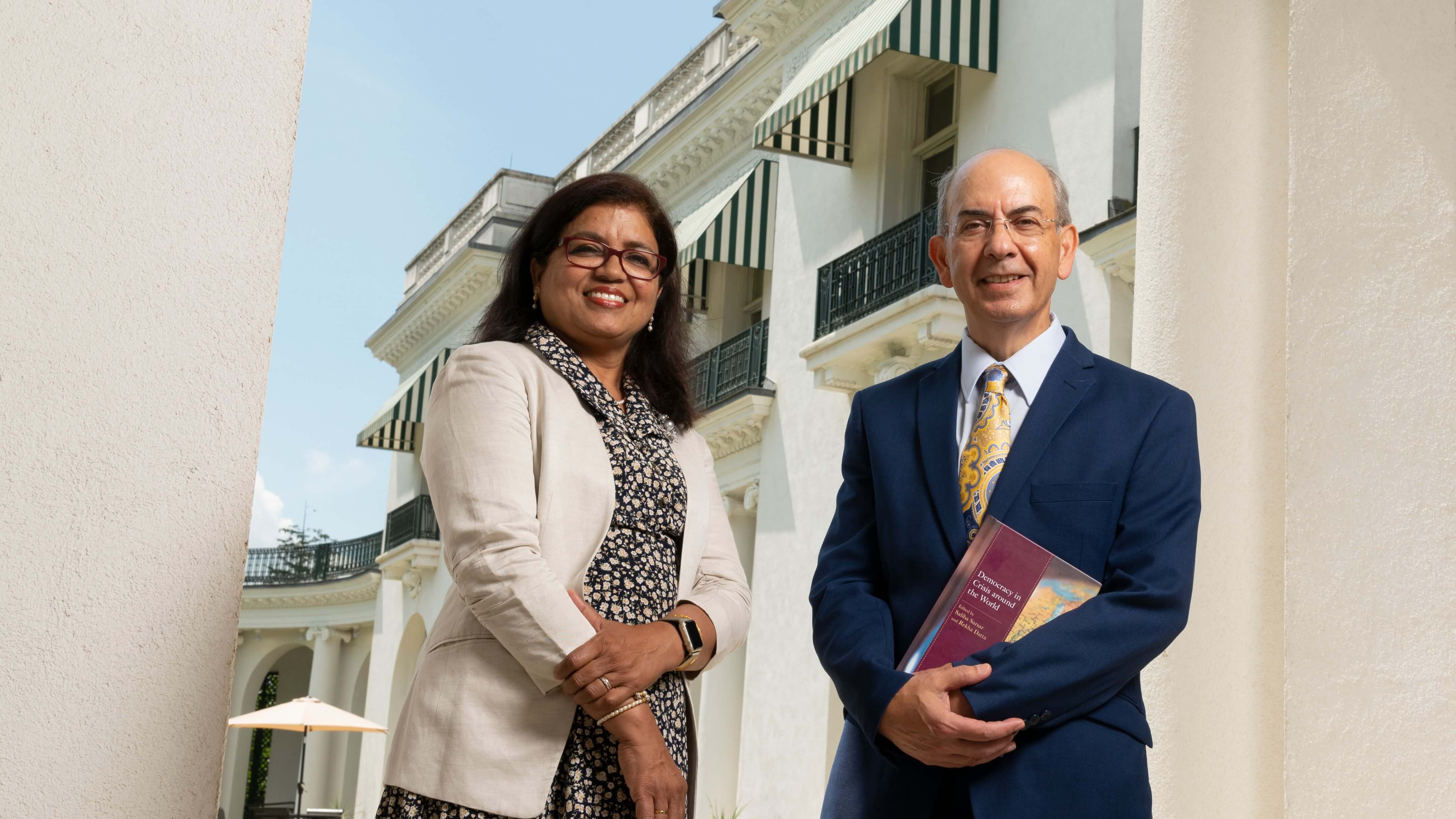
Rekha Datta, Ph.D., Freed Endowed Chair in Social Sciences and professor in the department of Political Science and Sociology, and Saliba Sarsar, Ph.D., professor in the department of Political Science and Sociology, collaborated with Monmouth University faculty to publish a scholarly collection of original essays, “Inequalities and Governance in an Uncertain World: Perspectives on Democratic & Autocratic Governments” (Lexington Books, an imprint of Rowman and Littlefield). The collection comes at a time where, the editors argue, individual freedoms and fundamental rights are facing impediments in democratic and autocratic societies and as the world community is still struggling to overcome the negative impacts of COVID-19.
“What is special about this book,” Datta states, “is its innovative, intersectional, and interdisciplinary framework that captures the crises in governance alongside the uncertainties of a global pandemic and long-standing inequalities and the ensuing pressure points in governance, which often give way to autocratic tendencies in democracies and perpetuating autocracies.”
This book mirrors the previous volume, “Democracy in Crisis around the World,” also edited by Datta and Sarsar. It covers history and politics as well as cultural and economic nuances that lead to structural and systemic inequalities in order to examine different paths to democracy in nine world regions, including sub-Saharan Africa, the Middle East and North America, South Asia, East Asia, Eurasia, Eastern Europe, Western Europe, North America, and Latin America.
“Our new book,” Sarsar explains, “enhances the previous volume by adding more focus on issues of race, caste, gender, class, religion, culture, and ethnicity as some leading countries are experiencing within and beyond of public health access, as substantiated during the pandemic.”
Just as the world has been witnessing a shift toward autocracy, the book advances the notion that a commitment to democracy can also be possible. This is achieved through a renewal of the social contract, calling for more equitable social, economic, and health policies, obliterating the intersections of inequality, and trudging a more sustainable future for all.
In addition to Datta and Sarsar, all contributors are affiliated with Monmouth University, including Julius O. Adekunle, Ph.D., professor in the department of History and Anthropology; Kenneth L. Campbell, Ph.D., professor in the department of History and Anthropology; Stephen J. Chapman, Ph.D., associate professor in the department of Political Science and Sociology; Manuel Chávez, Ph.D., lecturer in the department of History and Anthropology; Kevin L. Dooley, Ph.D., associate professor of Political Science and Sociology; Peter W. Liu, Ph.D., professor of Criminal Justice; Golam M. Mathbor, MSW, Ph.D., professor in the School of Social Work; Joseph N. Patten, Ph.D., associate professor in the department of Political Science and Sociology; Thomas S. Pearson, Ph.D., professor emeritus of History; Abha S. Sood, Ph.D., senior lecturer of English; and Hettie V. Williams, Ph.D., associate professor in the department of History and Anthropology. Denis Long, an American history graduate student, co-authored the chapter with Williams.

